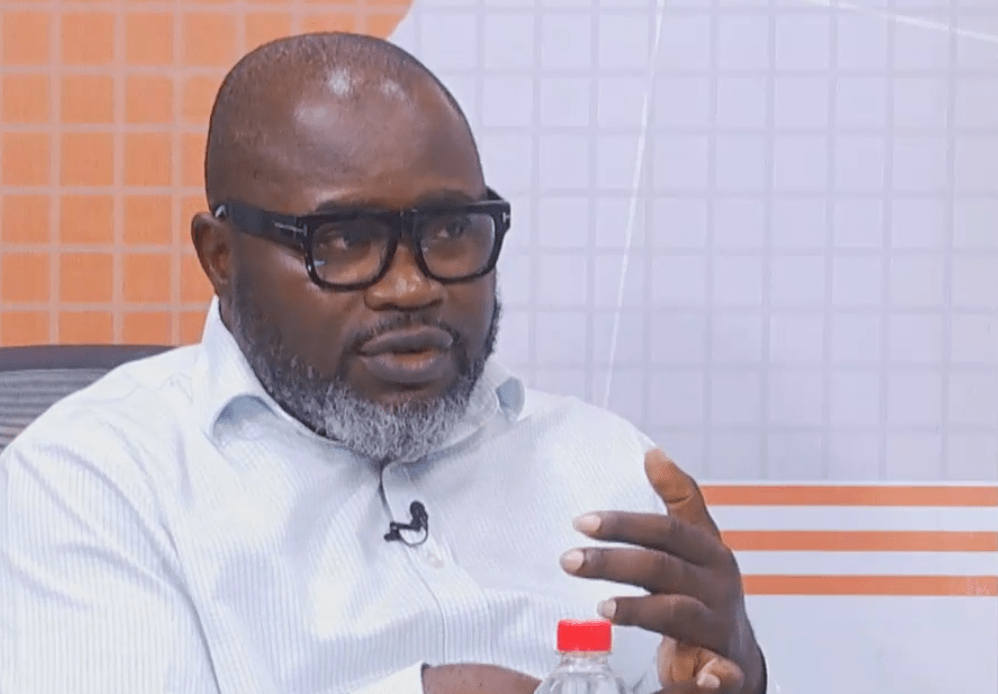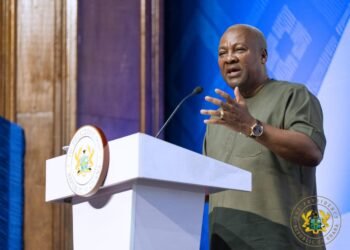Ghana’s education budget for 2025 has reached historic levels, with basic education receiving its highest allocation ever. Despite this milestone, serious concerns remain about the actual implementation of policies and programs aimed at improving the sector.
Kofi Asare, Executive Director of Eduwatch Africa, provided a comprehensive analysis of President John Dramani Mahama’s recent media engagement, highlighting both progress and pressing issues within the education system.
According to Asare, basic education was allocated approximately GHC 9 billion in the 2025 budget, marking the largest investment in Ghana’s history.
While this is a significant step forward, he cautioned that low-budget execution and administrative delays are threatening to undermine its potential impact.
“Financial clearance for recruiting teachers is still unannounced, with schools like Jilma Primary in Chreponi having only one teacher teaching the entire primary school; Kpani Primary has 2.
“Thousands of teachers recruited in 2024 are yet to receive their first salary. This disturbing situation requires urgent action.”
Kofi Asare

Accordingly, Asare warned that this situation is not only unfair to the affected teachers but also risks discouraging future recruitment and retention efforts.
Progress On Policies, But Funding Gaps In Education Budget Persist
As part of his review, Kofi Asare addressed specific policies and programs outlined by the government. On textbook provision, he confirmed that “GHC 564 billion for textbooks” was indeed allocated, with GHC 415 billion coming from the GETFund.
However, he criticized the government for its failure to deliver on this commitment, revealing that no textbooks have been procured so far.
With five years having passed since the introduction of the new curriculum, many schools across the country still lack essential learning materials—a situation Asare described as unacceptable.
Regarding the No-Fee-Stress initiative, Asare acknowledged some progress.
“Yes, No-Fee-Stress has so far benefitted some 120k students. Validation and payment are ongoing for more students, even as planning for the next academic year’s freshers is ongoing.
“However, there is a need for increased funding of the Policy, as the current budget is unable to absorb the full academic fees of many freshers in key STEM disciplines, etc, including medicine, pharmacy, and nursing.”
Kofi Asare

On the subject of free tertiary education, Asare clarified that while plans are in motion, actual implementation has yet to begin.
At present, the government is in the process of collecting critical data, especially on persons with disabilities (PWDs), which remains incomplete in many tertiary institutions.
Implementation is expected to start later this year, based on feedback from the Students Loan Trust Fund (SLTF) following recent stakeholder engagements.
Asare also reported positive developments regarding sanitary pad distribution.
He confirmed that in 14 sampled districts, supplies had arrived at District Education Offices as early as August and were already being distributed in places such as Ga East, Ga West, and Gushegu. Distribution is ongoing in other districts like Ejura, Ledzekuku, and Ada West.
Funding Free SHS And Decentralized Feeding Challenges
Kofi Asare further highlighted the government’s substantial support for the Free Senior High School (Free SHS) program.
In 2025, Free SHS received its highest-ever allocation of GHC 3.5 billion under the GETFund, resulting in an increase in per-unit feeding costs and other operational expenses.
However, he noted that the issue of decentralized feeding in SHS remains contentious. The Minister for Education recently reversed an earlier decision to decentralize the program, citing reports of food mismanagement by some school heads.

“Eduwatch continues to call for accountability mechanisms, especially store management and tracking systems, procurement capacity enhancement, etc.
“Decentralised feeding is still strongly recommended for checks and balances. Notwithstanding, CHASS claims the food situation has improved.”
Kofi Asare
Accordingly, Asare said Eduwatch’s ongoing Annual Policy Survey, set to be released in November, will verify these claims.
Despite these issues, Asare acknowledged that there has been notable progress considering the 2025 budget was approved only five months ago amid an ongoing political transition.
However, he underscored the urgent need to expedite teacher deployment and address structural gaps to ensure that the record-high education budget achieves meaningful results for students across Ghana.
READ ALSO: IEA Warns of Rising Oil Supply Surplus as OPEC+ Increases Output


















